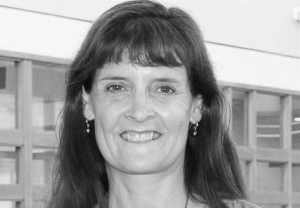Unitec optimistic
Unitec optimistic
Merran Davis, Interim Chief Executive at Unitec Institute of Technology, believes the Reform of Vocational Education (RoVE) is an opportunity to create an outstanding education experience which caters to all students.
Merran Davis, Interim Chief Executive at Unitec Institute of Technology, believes the Reform of Vocational Education (RoVE) is an opportunity to create an outstanding education experience which caters to all students.

“Every tertiary institute strives to give their students the best possible experience and highest chance at success. At Unitec we believe a unified sector will offer new opportunities to support our students, with the potential to remove many of the barriers and challenges we all share today,” Ms Davis says.
“As we’ve been saying for a while now, at Unitec we are optimistic about the future of the sector and are looking forward to working with other ITPs and ITOs.
Last year Unitec introduced a renewal plan which has driven significant change within the organisation, improving academic structures, support systems, finances, staff engagement and student satisfaction.
“I expect every institute has had that bit of extra introspection this year, making sure we understand our organisation, our community and our students. That is certainly the case with Unitec. We have made huge progress over the past year and we’re in a great place to open the doors and start working closely with other providers.”
Unitec is very interested in working with ITOs ahead of the formal transition to Te Pūkenga (NZIST) with pilot programmes which cover on-job and off-job training.
Ms Davis says students today face many barriers to study which a unified sector would be well suited to address.
“This is a chance for us to tackle some of the big items, taking that extra step towards addressing them which a new model will enable. So many students struggle with finances and finding the time for study, as well as access to study. Te Pūkenga will help us to align programmes between providers, support transitions from campus-based to distance learning, and move to on-job training, as it best suits our students and employers. Having that flexibility built in will be empowering for our students and has the potential to open education up to many more people who have previously felt study and upskilling wasn’t an option for them.”
Success rates for priority groups is another area which could be bolstered through collaboration, as the sector works to achieve parity for all learners.
“We have committed to achieving parity for our Māori and Pacific students and know others have made the same commitment,” Ms Davis said. “ITOs have shown a real strength in how they support and work with Māori and Pacific learners. Their leadership within a new sector which is free to share best practice and offer a wider range of study choices could bring a real step change.”
Ms Davis believes RoVE is about increasing the amount and the quality of vocational education delivered in New Zealand.
“The Minister has made it clear that the intention is to get more people into study and on the path to skilled work. If we are able to open the sector to support more students, it should go a long way to addressing some of the main concerns about change. Capturing the hearts and minds of our staff and how successful we are at breaking the barriers to successful study and enabling a lifelong approach to learning will be key to our success under Te Pūkenga.”
An Establishment Board was created in August to begin development of Te Pūkenga. The institute is expected to be launched on 1 April 2020, although it is unlikely to have an immediate impact on how the 16 current ITPs operate. Ms Davis said a challenge now was reassuring students and industry partners that they could continue to make long-term plans with ITPs.
“We know change is coming, but the full details are not yet clear. This has increased the level of concern amongst our students, particularly international students, who are often making a long-term commitment with us. Equally, our industry partners are looking to forge lasting relationships and want to know they will still be working with the same people and the same organisation in two to three years’ time.
“While we can offer reassurance that Unitec (and other institutes) will be strengthened by the reform process, the sooner we have a complete picture of what those reforms might look like the more confidence there will be in the market.”